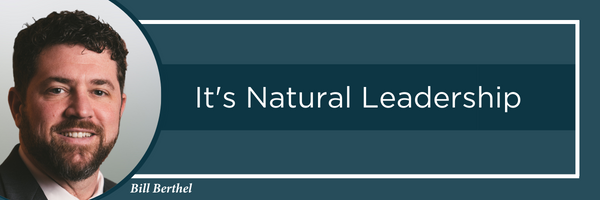We spend so much time on the Internet. We are constantly connected to a complex artificial environment, surfing the web, streaming media content, and accessing the cloud. It’s no secret that this technological addiction is affecting our productivity, leadership and well-being.
What about the real waves and streams, the real webs spun in the wilderness and the real clouds in the sky?
Cue your skepticism: Oh great! Another tree hugger with a blog… Is this just another “feel good” piece? What’s this have to do with my business, my growth and development, and my leadership?
Allow me to make a case for the genuine connection between the wonders of nature and your life in leadership.
A few years ago I had the honor of seeing Ricardo Sierra, a wilderness educator, on the TEDx stage in Oneonta, NY. While his studies were mostly with school-age children, his message about Nature Deficit Disorder resonated with me. This theory posits that people who don’t regularly experience the natural world suffer tangible consequences to their physical, mental, and emotional health. It got me thinking about how the “environment” of the modern workspace, with its artificial lighting and ubiquitous technology, might be harming its inhabitants.
Sierra also discussed our alienation from the “lessons nature provides.” He argued that children who don’t get outdoors often enough miss out on truths, both practical and spiritual, which can only be learned from nature. These lessons are important building blocks for many of the essential characteristics of leadership, and a lack of natural experience leads to challenges as we grow up.
These challenges are both physical and emotional. Some of the emotional challenges include an inability to deal with ambiguity, higher levels of anxiety, and difficulty with attention and focus. As we all know, these are critical attributes for effective leadership.
Sierra’s work is heavily inspired by the National Best Seller Last Child In The Woods, written by 2008 Audubon Medal recipient Richard Louv. In Last Child, Louv connects childhood exposure to the natural world with a leader’s ability to have and communicate a clear purpose, pay attention to what matters most, be a creative problem solver, and communicate effectively. There are more benefits to nature than poetic flights of fancy. Nature provides serious leadership lessons to anyone and everyone willing to partake.
If you were an “indoorsy” kid, it’s never too late! Spending intentional time outdoors as an adult can still increase your focus and attention, lower your blood pressure, burn calories, improve your sleep, and much more. You might walk the family dog, garden, shovel snow, go forest bathing, hike, bike–whatever nature calls you to do. And the healthy benefits of being outdoors also increase your leadership effectiveness.
Harvard physician Eva M. Selhub, co-author of Your Brain on Nature, says a drop of nature is like a drop of morphine to the brain, since it “stimulates reward neurons in your brain. It turns off the stress response which means you have lower cortisol levels, lower heart rate and blood pressure and improved immune response.” The vast majority of my coaching clients at least mention, if not actively work on, reducing their stress as leaders. Going outdoors is one of the best ways to accomplish this–and it’s free!
I wrote this blog outdoors in January in Central New York. There were more reasons for me to stay indoors than to venture out into nature–frostbite comes to mind. However, as I became more and more aware of the coldness on my face and fingers, the dampness of my socks on account of a leaky boot, and the sound of the wind through leafless trees, I noticed myself become miraculously recharged. And when I came back inside to warm up, I felt a calm centeredness that cannot be replicated.
So, I encourage you to spend more time in nature, whatever that means to you. Its benefits, both short- and long-term, cannot be overstated. Connect to the peace that is all around you! And if you need a boost without leaving your desk, check out www.realhappinessproject.org from the BBC. It’s not as good as being outdoors, but it can help recharge your eyes after staring at that spreadsheet all morning!
If you’re interested in using nature to improve your health and leadership, email me at bill@getemergent.com. I’d be happy to help.

Comments (1)
I love this article. Spending time outdoors is a number one priority in my home. I follow along with 1000hoursoutside on instagram – basically replace the 3 hours you spend on a screen in the outdoors and aim to spend 1,000 hours per year outside. It’s amazing what you can learn from nature or by being in nature – not just about nature specifically. I’m intrigued because I never thought to bring this concept into leadership or to the office setting. Now my gears are turning!